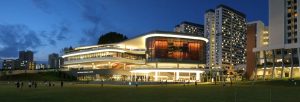A/P Tracey Skelton on Sexual Misconduct in NUS
January 21, 2021
Channel News Asia’s live podcast, CNA938 Q&A, covered the pertinent topic of sexual misconduct in response to the increasing number of reported cases of it in the past few years. Associate Professor Tracey Skelton (NUS Department of Geography), chair of the NUS Gender and Sexuality Research Cluster (GSRC), features as the third guest on this episode, which aims to identify the additional measures that can be taken to tackle sexual misconduct in Singapore.
As the chair of the GSRC, A/P Skelton hopes that this new research cluster offers a space for open conversations on the often disregarded yet complex topic of gender and sexuality in our community. Recognising the “anxiety and distress” that sexual misconduct reports have caused on campus, A/P Skelton assures listeners that the university has been putting in tremendous effort to ensure that the students are in a secure environment. As institutional resources and support structures are developing in NUS, more members of the university are coming forward to seek help and guidance, as they now feeling safer to report cases of sexual misconduct. Though the initiatives to address sexual misconduct are rather new, A/P Skelton is positive that the change in people’s attitudes will continue to occur over time.
The NUS Victim Care Unit, another new initiative implemented to provide support to those who have experienced sexual misconduct, is a point of contention that A/P Skelton brings up. She addresses the debate around the connotations of the term “victim” and proposes that the term “survivor”, which provides a positive outlook for the recovery of the sufferer of sexual misconduct, be used instead.
Ending her segment by emphasising the importance of consent, A/P Skelton reminds listeners that consent is necessary even for something that seems as simple as a hug. She remarks that it is “about just checking in with the other person about how they feel” to ensure that our actions are not causing them discomfort or disturbance.
Listen to the full interview here.

